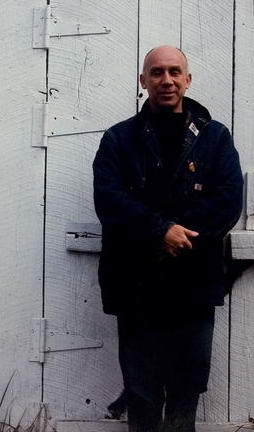
Thomas Merton was asked once to contribute to a book on success — specifically a statement of how he’d achieved it in his own life.
I replied indignantly that I was not able to consider myself a success in any terms that had meaning to me. If it happened that I had once written a best-seller this was a pure accident, due to inattention and naiveté and I would take very good care never to do the same thing again. If I had a message for my contemporaries it was surely this: be anything you like, be madmen, drunks, and bastards of every shape and form, but at all costs avoid one thing: success.
Merton “heard no more” from his interlocutor and was “not aware that my reply was published.”
Photo: Jonathan Williams
“Portrait of Thomas Merton”
Asheville Art Museum, Asheville, N.C.